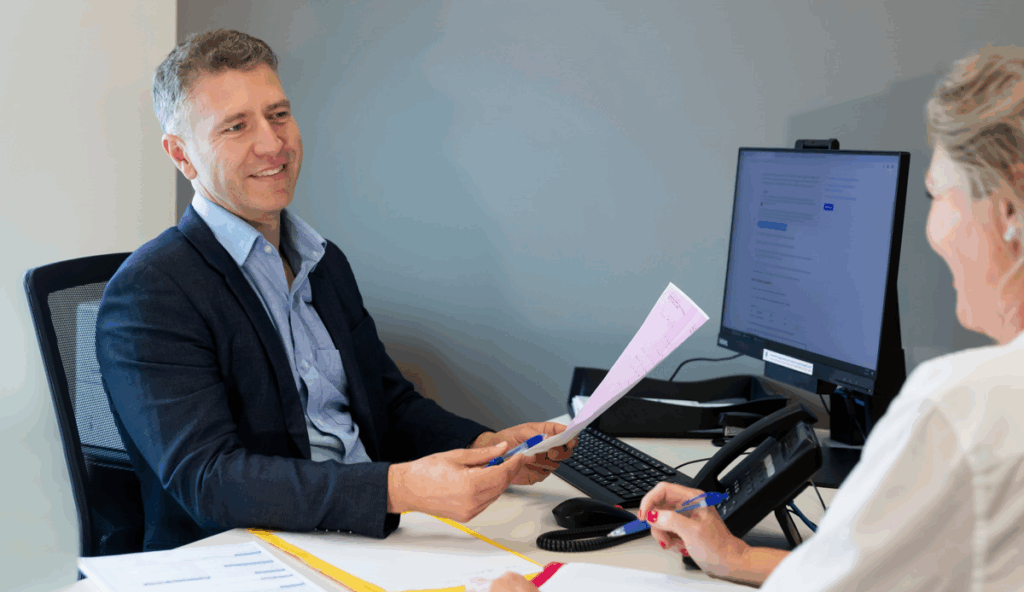So, you’ve done it. You’ve made the big decision and had weight loss surgery in Sydney. It probably came after months, or maybe even years, of thinking it through. Now that the surgery is behind you, you’re likely wondering, “What happens next?”
Is it all smooth sailing from here? What does an actual day look like after the operation? Will it hurt? Can you eat? How soon can you go home?
Let’s walk through a typical day after bariatric surgery in Sydney, so you know what to expect. From the moment you wake up in the recovery room to when you settle in at home, this guide will help paint a real, relatable picture of what day one is like.
Waking Up After Surgery: The First Few Hours
When you wake up after surgery, the first thing you’ll notice is a bit of drowsiness. That’s just the anaesthetic wearing off. There might be some discomfort, but it’s usually more like pressure or tightness in your stomach rather than sharp pain. Nurses will be around, checking on you often to make sure everything is going well.
You’ll likely be given small sips of water to start. You’ll be told to sip slowly and take your time, which is important because your stomach is now much smaller. Even a few sips can feel like a lot. It might feel strange, but don’t worry, you’ll get used to it pretty quickly.
Surprisingly, the hospital staff will encourage you to get up and take a short walk not long after waking up. You won’t be asked to do laps, but a short shuffle down the corridor helps your body recover faster and lowers the risk of blood clots. It might feel odd moving around so soon, but it’s a good sign.
The Rest of the Day: Listening to Your Body
What Can You Eat?
The short answer? Not much. At least not yet. Most patients start with clear liquids only. This could be broth, water, sugar-free jelly, or an electrolyte drink. You might not even feel hungry, which is normal.
Your whole approach to food is going to change. It’s not just about portion sizes anymore, but how you eat and how your body responds. Think of it like getting to know your body all over again. There’s no rush. It’s a slow and steady process.
Checking in With Yourself Mentally
This part often gets overlooked. It’s not just your body going through changes. Your mind will be racing too. Some people feel happy and relieved, while others might feel emotional or a little overwhelmed. All of that is normal.
You’ve just made a big change, and even if it’s a good one, it’s okay to feel a bit unsettled. Some people find it helpful to jot down how they’re feeling or even just talk to a loved one. Remember, this journey is as much about mental health as physical health.
Day One and Beyond: Settling Into the New Routine
Pain and Rest
Pain levels vary from person to person, but generally, it’s manageable. You’ll be given pain relief if needed. Some people describe it more as soreness or tightness in their stomach. Others might feel a bit of shoulder pain from the gas used during the operation, especially if it was done via keyhole surgery.
Tiredness is very common. Your body’s using a lot of energy to heal, so don’t be surprised if you feel like napping more than usual. Rest is part of recovery. If your body is telling you to lie down, then do it. There’s no prize for pushing through tiredness.
Talking to Your Healthcare Team
You won’t be left on your own. Whether you’ve had a sleeve, bypass or another type of bariatric surgery in Sydney, your medical team will check in with you soon after you leave the hospital. These check-ins are important. They’ll want to make sure you’re healing well and sticking to your food and drink plan.
It’s also your chance to ask any questions. If you’re worried about something or just unsure whether what you’re feeling is normal, don’t be afraid to speak up.
The Emotional Side: What People Don’t Often Mention
Here’s something many people don’t talk about enough. You might find your emotions are all over the place. One moment, you feel proud and excited about the future. Next, you might feel a bit sad or even regretful.
Why does this happen? Well, weight loss surgery Sydney isn’t just a physical transformation. It’s also the end of one chapter and the start of another. You’re leaving behind old habits, routines, and sometimes even your comfort zones.
Feeling emotional is completely normal. Joining a support group or talking to a counsellor can help. It’s always comforting to speak with others who’ve been through the same thing. Sometimes just hearing, “Yes, I went through that too,” can make a huge difference.
The First Night: Getting Some Rest
Your first night after surgery might feel a bit uncomfortable. You’ll probably be advised to sleep on your back or with your upper body slightly raised. Getting used to this new position can take time, especially if you’re someone who usually sleeps on their side or stomach.
You might find yourself waking up a few times during the night. That’s okay. Take it easy. Have an extra pillow handy, keep a bottle of water nearby, and listen to your body. Short naps during the day can help make up for broken sleep.
Looking Ahead: Small Wins That Make a Big Difference
Here’s the good news. In just a few days, you’ll start noticing little changes. Your clothes might feel looser. You might find it easier to move around or feel less out of breath. These are all early signs that your body is adjusting.
The Sydney Advantage: Recovering in a City That Has Your Back
Living in Sydney comes with its perks, especially when it comes to healthcare. There are plenty of experienced surgeons, dietitians, psychologists and support groups to help you stay on track. Whether you’re based in the inner city or out in the suburbs, there’s always help nearby.
When it comes to bariatric surgery in Sydney, the community is growing, and more people are sharing their journeys. That sense of support and connection can make a big difference.
So don’t be afraid to ask for help, check in with professionals, or even reach out to others who’ve gone through it. You’re not alone in this.
Ready to Take the Next Step?
If you’re thinking about starting your journey or you’ve already booked your procedure, it’s worth connecting with people who understand this path. In Sydney, you’ll find plenty of skilled professionals who specialise in bariatric surgery, including surgeons like those at Dr Phil Le Page. Many people turn to businesses like theirs when they want guidance backed by experience and understanding.
The important thing is to take that first step. Whether you’re researching or recovering, the journey is yours, and every step forward counts.






